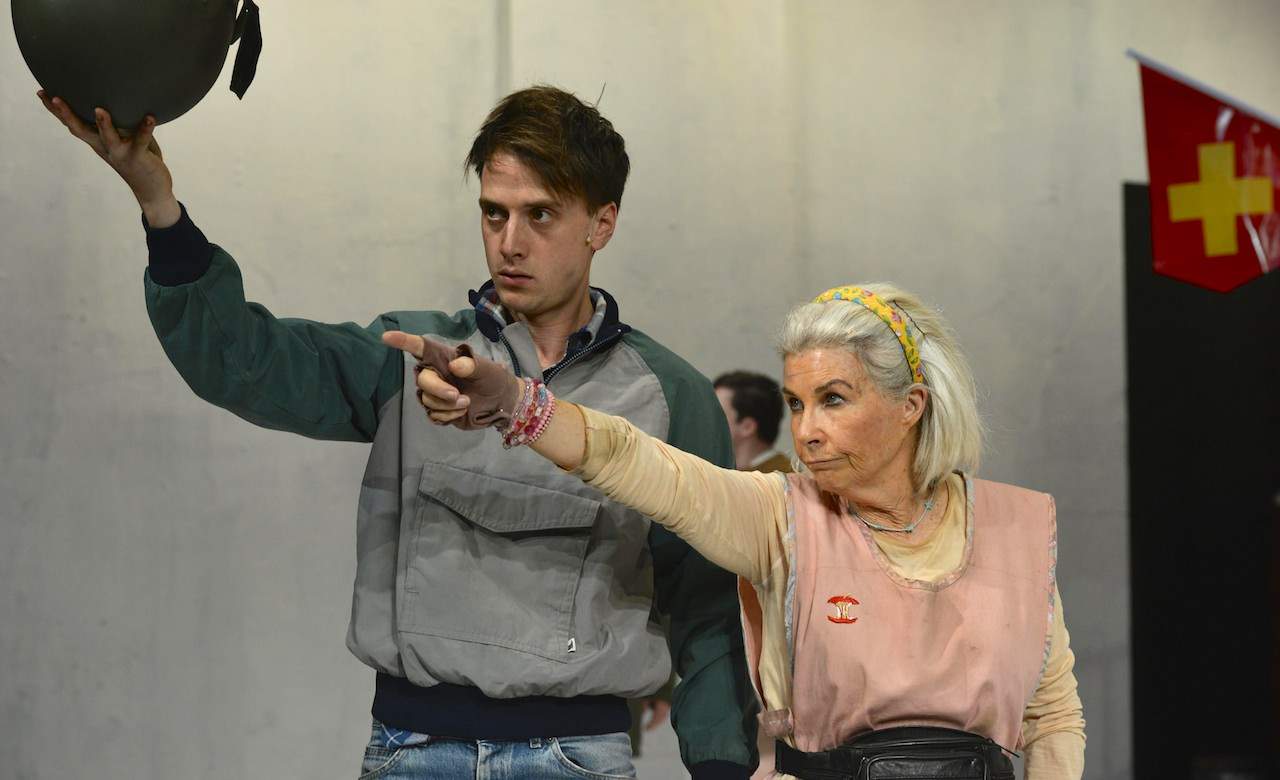Mother Courage and Her Children - Belvoir
Robyn Nevin and a stellar supporting cast make light work of a hefty classic.
Overview
Michael Gow really likes Bertolt Brecht. In Once in Royal David’s City, the protagonist Will, a theatre director, delivers an impassioned homily on political theatre and the tenets of Brecht’s Marxist project. Gow’s adaptation of Brecht’s Mother Courage and Her Children, directed by Eamon Flack, is similarly reverential towards Brecht, staying faithful to the play, with the addition of original music composed by Stefan Gregory.
Robyn Nevin is in fine form in the lead role of Mother Courage, belting out Gregory’s music with gusto and leading her family through the capitalist marketplace. She tows one of the more spruced-up wagons I’ve seen in a production of Mother Courage, more food truck than dinky cart. Designer Robert Cousins has opted for bright red with rainbow lights and shiny domestic cleaning products cover the walls inside.
Paula Arundell playing the opportunist sex worker Yvette delivers an excellent comedic performance, and we’re reminded that she’s also a fantastic singer. Anthony Phelan as the chaplain is a calm, steady presence in among the rough and tumble of the action, as is Emele Ugavule, playing Mother Courage’s mute daughter, Kattrin. This is a great cast, doing great acting, in a slightly beige production.
I’ve always found Mother Courage a bit stuffy and believe that didactic theatre is best consumed like a bitter pill — quickly. But much like Gow’s Once in Royal David’s City, his adaptation of Mother Courage is heavy with meaning and lengthy.
Michael Gow’s adaptation and Eamon Flack’s direction are perfectly good, but the production’s relevance or novelty in 2015 is elusive. Flack purports that the play is timely because we live in a capitalist society with wars in Syria, Ukraine and Iraq, but that’s as much current-day commentary as we get. In Royal David’s City, Gow writes that the face of today’s capitalism has changed; that there “are no more men in top hats smoking cigars and driving the workers into their satanic mills” and yet Flack’s production of Mother Courage could easily be from 1970s East Germany. If the class war has indeed changed shape, its new identity is not to be found in this production.





